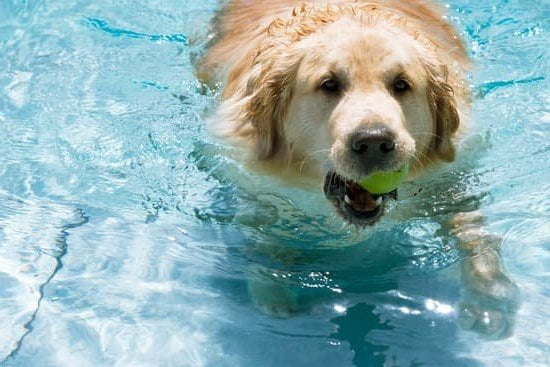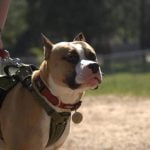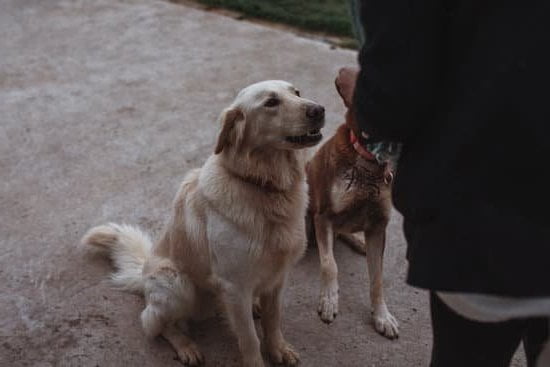Aggressive behavior in dogs can be a challenging issue for pet owners to address. Understanding the root causes and signs of aggression in dogs is crucial for effective training and management. Professional training for aggressive dogs is essential in addressing this behavior and ensuring the safety of both the dog and those around them.
One of the first steps in addressing aggression in dogs is understanding the underlying factors that contribute to this behavior. Whether it’s due to fear, territoriality, or past experiences, recognizing the triggers for a dog’s aggression is key to developing an effective training plan. By identifying these factors, pet owners can work with professional trainers to address their dog’s specific needs and develop a tailored training program.
While some pet owners may attempt to manage aggression on their own, seeking professional guidance is highly recommended. Professional trainers have both the expertise and experience necessary to work with aggressive dogs effectively. From finding the right trainer for your dog to utilizing proven training techniques, professional intervention can make a significant difference in managing and modifying aggressive behavior.
Signs and Symptoms of Aggression in Dogs
Aggressive behavior in dogs can manifest in various ways, and it is important for pet owners to be able to recognize the signs and symptoms of aggression in their dogs. Here are some common signs that indicate a dog may be displaying aggressive behavior:
- Growling or snarling
- Showing teeth
- Stiff body language
- Lunging or snapping
- Biting or nipping
In addition to these overt behaviors, there are also more subtle signs of aggression that pet owners should be aware of, such as excessive barking, guarding behavior around food or toys, and attempting to assert dominance over family members or other pets. It is crucial for pet owners to understand that aggression in dogs is not limited to certain breeds and can occur in any dog regardless of size or breed.
Recognizing these signs of aggression is the first step in addressing the problem, but professional intervention through training for aggressive dogs is often necessary to effectively manage and modify aggressive behavior.
The Importance of Professional Training for Aggressive Dogs
Professional training for aggressive dogs goes beyond obedience training and basic commands. It requires specialized knowledge and experience in dealing with aggressive behavior. A professional trainer who specializes in working with aggressive dogs can assess the underlying causes of the aggression and develop a tailored training plan to address these issues.
During professional training for aggressive dogs, trainers use a combination of behavior modification techniques, desensitization exercises, and positive reinforcement to help the dog learn alternative behaviors and cope with triggers that lead to aggression. This type of specialized training also provides pet owners with the guidance and support they need to effectively manage their dog’s aggressive tendencies on a day-to-day basis.
Overall, investing in professional training for aggressive dogs is essential for ensuring the safety and well-being of both the dog and those around them. It is an important step towards helping an aggressive dog become a well-adjusted and balanced member of the family.
The Importance of Professional Training for Aggressive Dogs
Understanding the extent of aggressive behavior in dogs is crucial to addressing the issue. In cases of severe aggression, it’s vital to seek professional help. Professional trainers have the expertise and experience to work with aggressive dogs and understand the underlying causes of their behavior. They can create a personalized training plan based on the dog’s specific needs, ensuring a more effective and successful outcome.
The Benefits of Professional Training
Professional trainers are equipped with the knowledge and skills to handle aggressive dogs safely and effectively. They can assess the root cause of the aggression and develop a comprehensive training program tailored to address it. This may involve behavior modification techniques, desensitization exercises, and positive reinforcement methods, all of which require guidance from an experienced professional.
When seeking professional training for an aggressive dog, it’s essential to find a reputable trainer with experience in dealing with aggressive behavior. Look for trainers who are certified by recognized associations and have a proven track record of successfully rehabilitating aggressive dogs. Additionally, ask for referrals or read reviews from previous clients to ensure that you’re choosing a qualified professional who can provide the best care for your dog.
Finding the Right Trainer for Your Aggressive Dog
Training aggressive dogs can be a challenging and potentially dangerous task. It is crucial to recognize the importance of seeking professional help when dealing with a dog that displays aggressive behavior. Professional trainers have the necessary expertise, experience, and resources to effectively address and manage aggression in dogs, ensuring the safety of both the animal and its human companions.
Professional training for aggressive dogs involves a comprehensive assessment of the dog’s behavior to determine the underlying causes of aggression. Trainers are equipped to identify triggers, understand body language, and implement appropriate techniques to modify aggressive behavior. They can also provide guidance and support to owners, helping them understand how to effectively communicate with their dog and create a positive and safe environment for training.
Moreover, experienced trainers are knowledgeable about different training methods and approaches that can be tailored to suit the specific needs of an aggressive dog. This may include behavior modification techniques, desensitization exercises, positive reinforcement strategies, and more. By enrolling an aggressive dog in professional training programs, owners can gain valuable insights into understanding their pet’s behavior while learning how to manage and address aggression in a safe and responsible manner.
| Importance of Professional Training | Benefits |
|---|---|
| Comprehensive assessment of behavior | Effectively modifies aggressive behavior |
| Guidance for owners | Tailored training methods |
| Creates a positive environment | Safe management of aggression |
Training Techniques for Aggressive Dogs
Aggression in dogs can be a serious issue for both the pet and its owners. Professional training for aggressive dogs is essential to address this behavior and prevent any potential harm. There are various techniques that professional trainers use to help manage and retrain aggressive dogs. Here are some effective training techniques for aggressive dogs:
- Positive Reinforcement: One of the most commonly used training techniques for aggressive dogs is positive reinforcement. This involves rewarding the dog with treats, praise, or toys when they exhibit non-aggressive behavior. This technique helps to encourage and reinforce positive behavior while reducing aggressive tendencies.
- Desensitization: Desensitization is another important training technique for aggressive dogs. This involves slowly exposing the dog to the triggers that cause their aggression in a controlled and safe environment. Over time, the dog learns to remain calm in these situations, reducing their aggressive response.
- Counterconditioning: Counterconditioning involves changing the dog’s association with the trigger of their aggression. By pairing the trigger with something positive, such as treats or play, the dog can learn to associate the trigger with a pleasurable experience rather than a threat.
These training techniques should always be carried out under the guidance of a professional trainer experienced in handling aggressive behavior in dogs. With consistent and patient application of these techniques, it is possible to successfully retrain an aggressive dog and improve their overall behavior and quality of life.
It’s important to note that every dog is unique, so different techniques may work better for individual cases of aggression. A professional trainer will be able to assess your dog’s specific needs and develop a customized training program tailored to their personality and triggers.
Managing Aggression in Daily Situations
Aggression in dogs can be a concerning behavior that owners may struggle to manage on a daily basis. Whether it’s growling, barking, biting, or other aggressive behaviors, addressing and managing aggression in daily situations is crucial for the safety of both the dog and those around them. It’s important to understand that managing aggression involves consistent training, patience, and sometimes professional help.
One of the key components of managing aggression in daily situations is creating a safe and controlled environment for the dog. This may involve using muzzles or leashes during walks, keeping the dog away from triggers that may cause aggressive reactions, and providing positive reinforcement when the dog displays calm behavior. Additionally, it’s crucial for owners to learn how to read their dog’s body language in order to anticipate and prevent aggressive episodes.
Furthermore, consistency is vital when managing aggression in daily situations. This means following through with the training techniques recommended by professional trainers, setting clear boundaries for the dog’s behavior, and avoiding situations that may escalate their aggression. By consistently applying appropriate management strategies, owners can gradually reduce their dog’s aggressive tendencies and create a safer living environment for everyone involved.
| Managing Aggression Tips | Additional Information |
|---|---|
| Create a safe environment | Using muzzles or leashes during walks |
| Consistency is key | Follow through with professional training techniques |
The Role of Socialization in Training Aggressive Dogs
Socialization plays a crucial role in training aggressive dogs to help them overcome their behavioral issues. By exposing aggressive dogs to different people, animals, and environments in a controlled and positive manner, trainers can help these dogs learn appropriate social behaviors and reduce their aggression.
Benefits of Socialization
Socialization helps aggressive dogs become more comfortable and less reactive in various situations. It teaches them how to interact with other animals and humans calmly and respectfully. Through proper socialization, aggressive dogs can learn to tolerate the presence of unfamiliar people or animals without becoming anxious or aggressive.
Challenges of Socializing Aggressive Dogs
Socializing aggressive dogs can be challenging due to their fear, anxiety, or past negative experiences. It requires patience, consistency, and a deep understanding of the dog’s triggers and behavior. Trainers need to create a structured socialization plan tailored to each dog’s specific needs and gradually expose them to new experiences at a pace they can handle.
Techniques for Socializing Aggressive Dogs
Trainers use desensitization and counter-conditioning techniques to help aggressive dogs overcome their fears and develop positive associations with new stimuli. These techniques involve slowly introducing the dog to disturbing stimuli while providing rewards or positive reinforcement to change their emotional response. Additionally, controlled interactions with other well-behaved animals and supervised playtime can help build a confident and calm demeanor in aggressive dogs.
Success Stories
In conclusion, training for aggressive dogs is a crucial step in addressing and managing their behavior. As discussed in this article, understanding the root causes of aggression in dogs as well as being able to identify the signs and symptoms are essential components of effectively addressing this issue.
It is important for dog owners to recognize the significance of professional training for aggressive dogs, as it can provide the expertise and guidance needed to help these animals overcome their aggressive tendencies.
Finding the right trainer for an aggressive dog is another key aspect of successful training. A qualified and experienced trainer can design and implement effective techniques tailored to the specific needs of the dog. Additionally, proper socialization plays a significant role in mitigating aggression, as it allows dogs to develop positive interactions with other animals and people.
The success stories shared in this section demonstrate that with the right approach, aggressive dogs can indeed be trained and rehabilitated. These case studies serve as inspiring examples of how commitment, patience, and professional guidance can make a significant difference in managing and modifying aggressive behavior in dogs. With dedication and proper training techniques, many dogs have been able to overcome their aggression issues and live happy, fulfilling lives alongside their owners.
Frequently Asked Questions
Can Aggression Be Trained Out of a Dog?
Aggression in dogs can be trained and managed with the right approach. Training techniques like positive reinforcement, desensitization, and counter-conditioning can help modify the dog’s behavior over time.
What Is the Best Training for an Aggressive Dog?
The best training for an aggressive dog involves seeking professional help from a certified dog trainer or behaviorist experienced in working with aggression. They can create a personalized training plan to address the specific triggers causing the aggression.
How Do You Stop Aggression in Dogs?
Stopping aggression in dogs requires identifying and addressing the underlying cause of the behavior. This may involve managing their environment, providing mental and physical stimulation, setting clear boundaries, and using positive reinforcement techniques to reward desired behaviors while discouraging aggression. Consistency and patience are key in addressing aggression in dogs.

Welcome to the blog! I am a professional dog trainer and have been working with dogs for many years. In this blog, I will be discussing various topics related to dog training, including tips, tricks, and advice. I hope you find this information helpful and informative. Thanks for reading!





